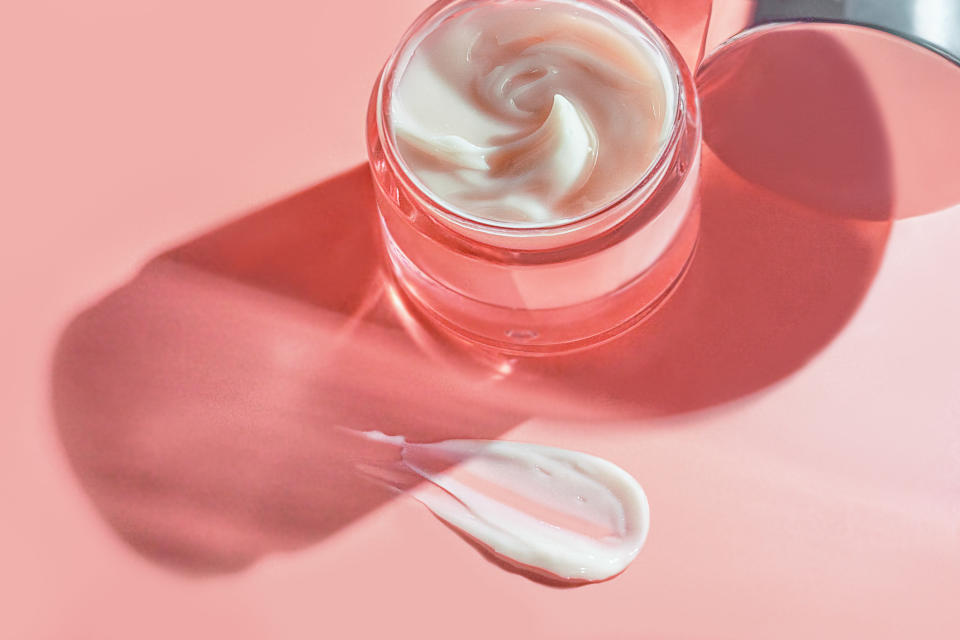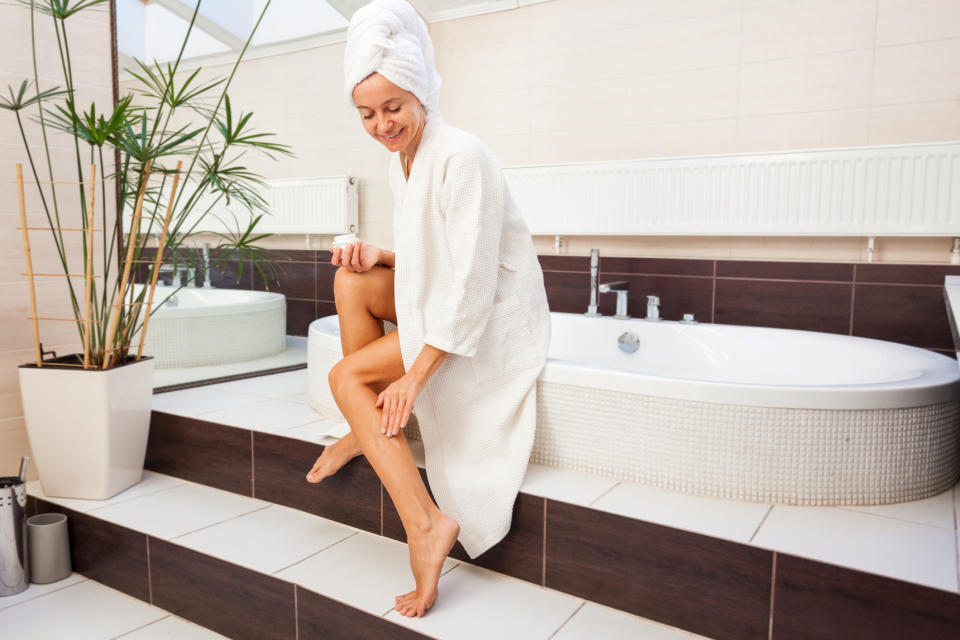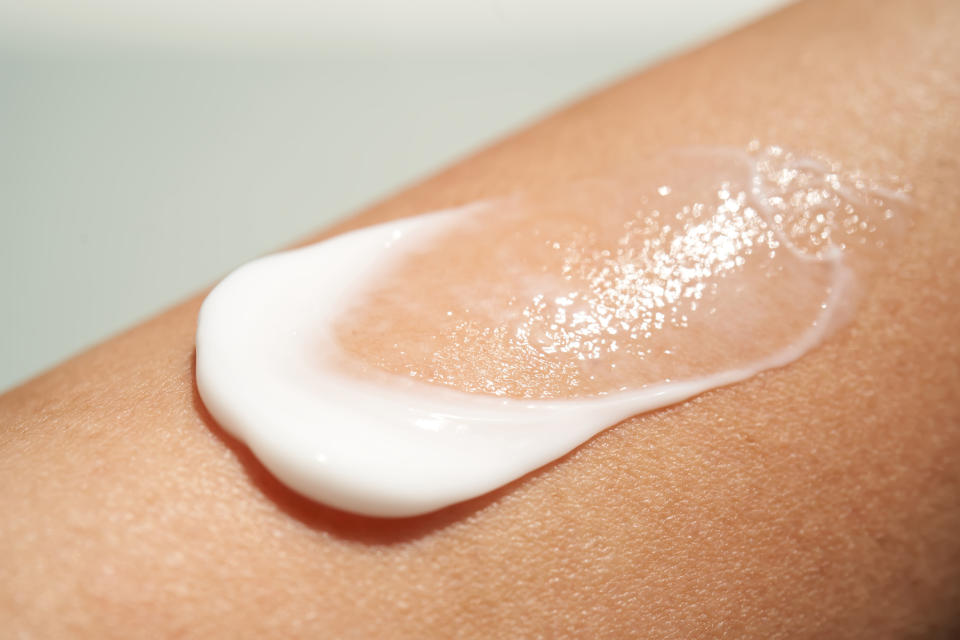Retinol for Body: How To Ensure All of Your Skin Looks Younger
When we talk about skincare, 90% of the time we’re talking about the face, which makes sense – your face is visible year-round, it’s the part of your body most exposed to the sun and it often reveals the first signs of aging. So by all means, continue investing in those facial serums and sunscreens. But while your face may be the priority, that doesn’t mean the rest of your skin should suffer in silence. You deserve to feel moisturized and exfoliated and look more youthful from head to toe. How? With the same super weapon that originally revolutionized skincare: Retinol. Keep scrolling to learn more about retinol for the body.
What is retinol?

Retinol is known as the MVP of anti-aging skincare, the golden child of every dermatologist's office. But what IS retinol, exactly? “Retinol, or retinoids, are vitamin A derivatives,” says Helen Torok, MD, board-certified dermatologist and co-founder of HH Science. “They work by binding to retinoic acid receptors, which then can affect gene expression, which makes them very powerful and able to produce significant changes in the skin.”
To be more specific, those “significant changes” involve collagen, another major buzzword in the skincare world. Retinol “works by stimulating collagen production, increasing cell turnover and improving skin texture and tone,” says Alexis Pfropper, licensed esthetician and owner of Asthetik salon.
In other words: Retinol, unlike many skincare actives, actually has the science and research to back up the many claims made about its efficacy. And while this research has historically been applied to retinol products for the face, that doesn’t mean you need to be limited in how you use it. In fact, all of the dermatologists and skin experts we reached out to advised using retinol for full-body skincare. Let’s talk about it.
Benefits of retinol for body

Although retinol is most often used in skincare for the face, a growing number of retinol-for-body products are now on the market.
“Retinol is commonly associated with facial skincare, but its benefits can extend to the body as well,” affirms Pfropper. “When incorporated into body washes and lotions, retinol can help address signs of aging, such as sagging skin, crepey texture and uneven tone, on areas like the chest, arms and legs.”
Related: 8 Best Body Scrubs for Smooth + Soft Skin by the Time You Step Out of the Shower
These benefits can be especially helpful in areas where the skin is thinner and regularly exposed to the sun, such as your neck, hands and decolletage. Sun exposure without proper protection from SPF can lead to premature aging, also known as photoaging. But body lotions and moisturizers formulated with retinol can slow down these signs of aging and keep your skin looking youthful and dewy for as long as possible.
We’ve confirmed that retinol is just as useful for the body as it is for your face. But retinol comes in many different forms, and determining which one is right for you can be a little less straightforward.
Choosing the right retinol product for you

According to Dr. Torok, vitamin A comes in many different forms, including “retinol, retinoic acid, adapalene, retinyl palmitate, retinaldehyde and many more. They all work in slightly different ways, so it is important to do a little research to determine which form will work best for your skin type and skin concerns.”
For instance, women prone to hormonal acne might fare best with a prescription retinoid, which helps to treat clogged pores and acne. On the other hand, those of us with sensitive skin might want to start with over-the-counter products such as retinaldehyde and retinyl palmitate, which tend to be lower in dosage and therefore less irritating.
It’s also a good idea to look for complementary ingredients that work in tandem with the retinol to boost efficacy and minimize irritation. “Hydrating ingredients like aloe, hyaluronic acid, glycerin and shea butter can help moisturize and soothe the skin, counteracting any dryness or sensitivity that may occur with retinol use,” Pfropper says.
Meanwhile, Dr. Torok recommends looking for products with retinol to reduce the appearance of cellulite. “I love HH Science’s Age Defying Body Lotion,” Dr. Torok says. “It contains antioxidants, green tea, humectants and caffeine to increase the efficacy of the retinol and keep you hydrated, firm and tight from head to toe.”
If you aren’t quite sure where to start with retinol or what product strength is best for you, it’s a good idea to consult your dermatologist. They’ll be able to recommend or prescribe a product that best meets your skincare needs.
How to use retinol for body?
“Retinol can cause sensitivity and sun sensitivity, so it's recommended to start with lower concentrations and gradually increase use over time, or use a plant-based retinol vs. a prescription,” says Pfropper.
However, these guidelines are a bit looser when it comes to body products. First of all, the skin on our bodies tends to be thicker and tougher than the skin on our face, meaning it can handle more aggressive treatment. Second, products such as Paula's Choice Retinol Skin-Smoothing Body Treatment are formulated at a much lower concentration than prescription products, and are therefore less likely to be irritating.
If you’re looking for a good starting place, such as something gentle and super moisturizing, consider the Versed Press Restart Gentle Retinol Body Lotion made with cocoa butter and squalane. Or try the Advanced Clinicals Retinol Cream, which has over 46,000 reviews on Amazon.
As with introducing anything new into your skincare regimen, it’s always a good idea to start off slow (and use plenty of SPF when outside). A little TLC can go a long way towards keeping your skin hydrated, happy and wrinkle-free for years to come.
For more ways to look younger, click through these stories:
Why Everyone Is Buzzing About Matcha Benefits for Skin + How It Can Help Women Over 40
Skin Flooding: The Viral Trend Dermatologists Swear By + How to Get the Best Results
